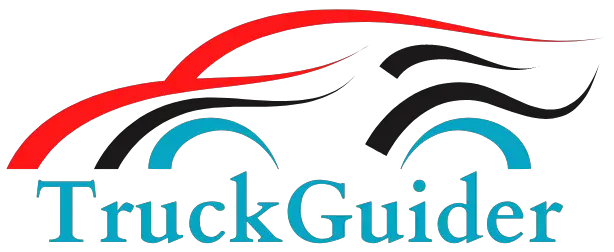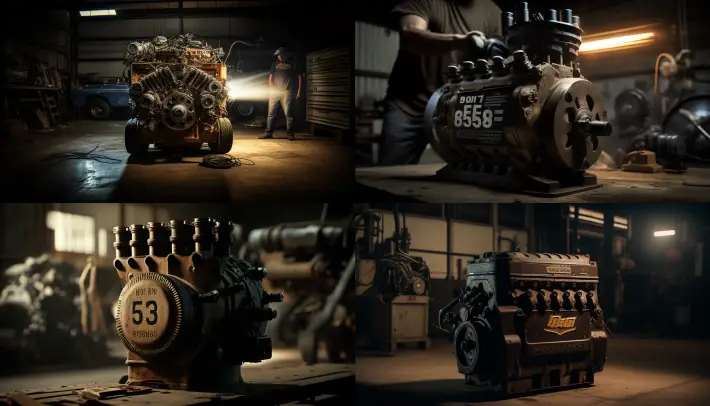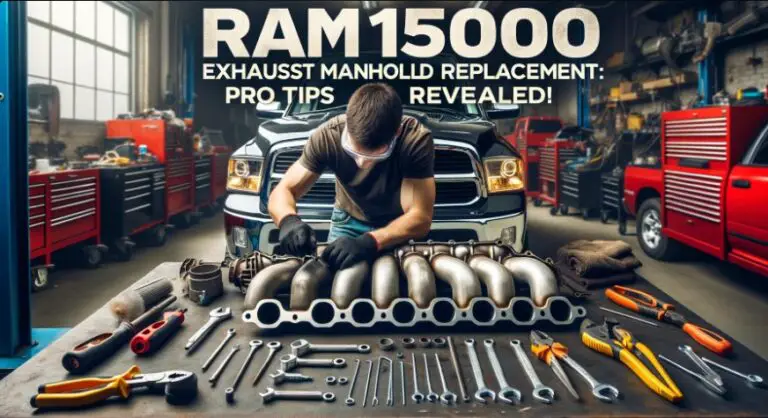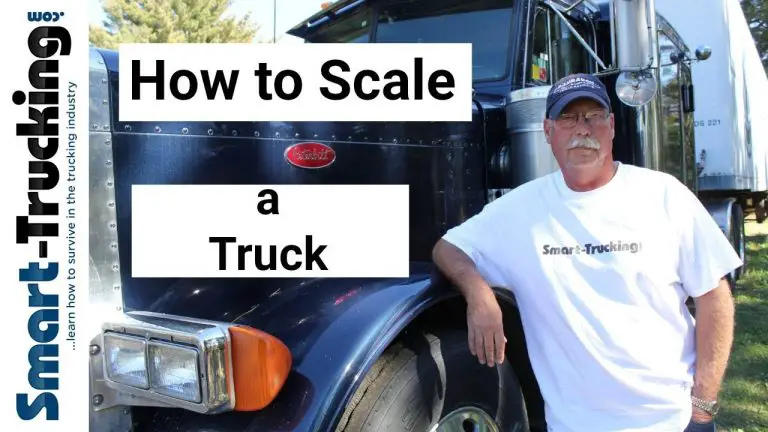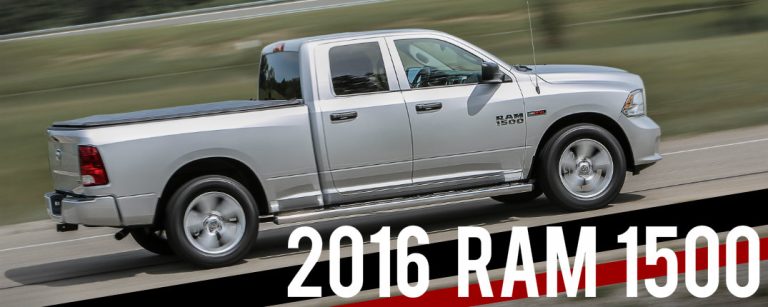Chevy Truck Jerks When Coming To A Stop
If you own a Chevy truck, you may have experienced a sudden jolt or hesitation when coming to a stop. This can be a frustrating and potentially dangerous problem, known as jerking.
In this post, we will provide a quick-fix guide for this issue. We will discuss the possible causes of jerking in Chevy trucks, as well as provide practical tips and advice for addressing the problem.
Whether you’re a DIY enthusiast or prefer to leave it to the professionals, this guide will help you solve the issue of jerking in your Chevy truck.
Chevy Truck Jerks Problem Fix
5 Causes of Jerking in Chevy Trucks
1. Worn brake pads
Over time, brake pads wear down and lose their effectiveness. This can lead to increased stopping distances and a feeling of jerking when coming to a stop.
To check for worn brake pads, simply remove the wheel and visually inspect the pads. If they appear thin or worn, it’s time for a replacement.
2. Low transmission fluid
The transmission is responsible for transmitting power from the engine to the wheels. Low transmission fluid levels can cause gears to slip or engage poorly, leading to jerking or hesitation when coming to a stop.
To check transmission fluid levels, locate the transmission dipstick under the hood and check the fluid level. If it’s low, add more fluid.
3. Faulty fuel injector
The fuel injector is responsible for delivering fuel to the engine. A clogged or malfunctioning fuel injector can cause a decrease in engine power and jerking when coming to a stop.
To check for a faulty fuel injector, a mechanic can run a diagnostic test to see if there are any error codes.
4. Worn or damaged wheel bearings
wheel bearings are responsible for supporting the weight of the vehicle, and allowing the wheel to rotate smoothly. Worn or damaged wheel bearings can cause vibrations and jerking when coming to a stop. To check wheel bearings, a mechanic can conduct a visual inspection, or raise the vehicle on a hoist to spin the wheel and check for any play.
5. Other causes
Other possible causes of jerking in Chevy trucks include worn or damaged drive shafts, faulty transmission control modules, or problems with the throttle position sensor.
By understanding the possible causes of jerking in Chevy trucks, you can take steps to address the problem and get back on the road safely.
Quick Fix Solutions For Jerking in Chevy Trucks
Check brake pads
Step 1: Raise the vehicle using a jack or lift, and remove the wheel.
Step 2: Inspect the brake pads visually. If they appear thin or worn, they need to be replaced.
Step 3: If the brake pads are in good condition, but the problem persists, it’s best to consult with a mechanic for further diagnosis.
Change transmission fluid
Step 1: Locate the transmission dipstick under the hood, and check the fluid level.
Step 2: If the fluid level is low, add more transmission fluid. Be sure to use the correct fluid type for your vehicle.
Step 3: If the problem persists even after changing the fluid, it’s best to consult with a mechanic for further diagnosis.
Clean fuel injectors
Step 1: Disconnect the negative battery cable and remove the air intake hose to access the fuel injectors.
Step 2: Use a fuel injector cleaner or a specialized cleaning solution to clean the injectors.
Step 3: Reinstall the air intake hose and reconnect the negative battery cable.
Step 4: If the problem persists even after cleaning the injectors, it’s best to consult with a mechanic for further diagnosis.
Check wheel bearings
Step 1: Raise the vehicle on a hoist and spin the wheel, checking for any play or vibrations.
Step 2: If any play or vibrations are found, it’s likely the wheel bearings need to be replaced.
Step 3: If the problem persists even after checking and replacing the wheel bearings, it’s best to consult with a mechanic for further diagnosis.
It’s important to keep in mind that these quick-fix solutions are intended as temporary solutions.
If the problem persists after trying these solutions, it’s best to take the vehicle to a mechanic for a proper diagnosis and repair.
Prevention From Jerking in Chevy Trucks
Regular maintenance is one of the best ways to prevent jerking in Chevy trucks and keep your vehicle running smoothly.
By performing regular oil changes, tire rotations, and brake inspections, you can help ensure that all the systems in your vehicle are working as they should, and catch any potential issues before they become major problems.
Regular oil changes help to keep the engine lubricated and running smoothly. Oil helps to reduce friction between the moving parts of the engine, and over time it can become dirty or lose its effectiveness.
By regularly changing the oil, you can help to prolong the life of the engine and reduce the risk of jerking or hesitation when coming to a stop.
Tire rotations and brake inspections help to ensure that your tires and brakes are in good condition. Worn or uneven tires can lead to vibrations or shaking when driving, while worn brake pads can increase stopping distances and lead to jerking when coming to a stop.
By regularly rotating your tires and inspecting your brakes, you can help to ensure that they are in good condition and working as they should.
By keeping up with regular maintenance, you can help to extend the life of your vehicle, reduce the risk of costly repairs, and save money in the long run.
Regular maintenance can also help to ensure that your vehicle is safe and reliable, giving you peace of mind when you’re on the road.
Common Symptoms of Jerking in Chevy Trucks
Sudden jolt or hesitation when coming to a stop
This is the most common symptom of jerking in Chevy trucks. The vehicle may feel as if it’s suddenly losing power or being thrown forward when coming to a stop. This can be caused by worn brake pads, low transmission fluid, or a faulty fuel injector.
The feeling of being thrown forward when braking
If the vehicle jerks or lunges forward when braking, it can be caused by worn brake pads or a malfunctioning brake system. This can be dangerous and can make the vehicle harder to control.
Warning lights or error codes on the dashboard
Some vehicles may display warning lights or error codes on the dashboard when there is a problem with the vehicle’s braking system or transmission.
Some common warning lights to look out for include the check engine light, the brake warning light, or the transmission warning light.
If any of these lights come on, it’s important to have the vehicle checked by a mechanic as soon as possible.
Vibration on the steering wheel or seats
If the vehicle starts vibrating on the steering wheel or the seat when braking or coming to a stop, It could be a symptom of worn or faulty wheel bearings or unbalanced wheels.
Noise from the wheels or brakes
If you notice any noise from the wheels or brakes when braking or coming to a stop, it could be a symptom of worn or damaged brake pads, worn or damaged rotors, or worn or damaged wheel bearings.
DIY vs Professional Help
DIY solutions refer to repairs and maintenance that can be done by the vehicle owner at home, without the need for professional assistance. This can include things like changing the oil, rotating the tires, or cleaning the fuel injectors.
Professional repairs, on the other hand, refer to repairs and maintenance that are best done by a trained and certified mechanic. This can include things like replacing worn brake pads, rebuilding a transmission, or replacing a faulty fuel injector.
Pros of DIY Solutions
Cost-effective
DIY solutions are generally less expensive than professional repairs, as you don’t have to pay for labor or shop fees.
Convenience
You can do the repairs or maintenance on your own time and at your own pace.
Knowledge
You can learn more about your vehicle and how it works by doing the repairs yourself.
Cons of DIY Solutions
Risk of further damage
If you don’t have the proper tools or knowledge, you could end up causing further damage to the vehicle, which can be costly to repair.
Safety hazard
Improper repairs can also be a safety hazard and can make the vehicle harder to control or less reliable.
Pros of Professional Repairs
Quality
Professional mechanics have the training, knowledge, and tools to perform repairs correctly and efficiently.
Safety
Professional repairs are done to the manufacturer’s specifications and standards, which can help to ensure the vehicle is safe and reliable.
Warranty
Many professional repairs come with a warranty, which provides additional protection for the vehicle owner.
Cons of Professional Repairs
Cost of Professional Repairs
Professional repairs are generally more expensive than DIY solutions, as you have to pay for labor and shop fees.
Convenience
You have to schedule an appointment and drop off the vehicle, which can be inconvenient.
Overall, the best course of action will depend on the individual case and the severity of the issue. For simple repairs or maintenance tasks, such as changing the oil or rotating the tires, DIY solutions may be a cost-effective and convenient option.
For more complex repairs, such as replacing worn brake pads or rebuilding a transmission, it’s best to leave it to the professionals to ensure the vehicle is safe and reliable.
If you’re unsure about whether a repair is something you can do yourself or if you notice any warning signs that indicate a problem with your vehicle, it’s best to have it checked by a professional mechanic.
Common Misconceptions About Jerking in Chevy Trucks
Jerking is caused by low gas
While it is true that a low fuel level can cause the engine to stumble or hesitate, it is not the cause of jerking when coming to a stop. This jerking is typically caused by issues with the braking system or transmission.
Jerking is caused by the engine running too hot
While an overheating engine can cause a variety of problems, it is not typically the cause of jerking when coming to a stop. This issue is caused by problems with the braking system or transmission.
Jerking is caused by worn spark plugs
Worn spark plugs can cause a variety of engine problems, but they are not typically the cause of jerking when coming to a stop. This issue is caused by problems with the braking system or transmission.
Jerking is caused by worn-out tires
Worn-out tires can cause a variety of problems, such as poor traction and handling, but they are not typically the cause of jerking when coming to a stop. This issue is caused by problems with the braking system or transmission.
I can ignore the jerking, it will go away
Ignoring the problem will not make it go away and can actually make the problem worse and cause further damage to the vehicle. It is important to address the issue as soon as possible to avoid costly repairs in the future.
It is important to have accurate and reliable information when it comes to understanding and addressing problems with your vehicle. Misconceptions can lead to confusion and a lack of trust in the vehicle’s repair. It is always recommended to consult professional mechanics and consult the owner’s manual to be sure about the cause of the problem.
FAQs:
What causes jerking in Chevy trucks?
What are the common symptoms of jerking in Chevy trucks?
Is it better to do a DIY solution or take my Chevy truck to a mechanic?
How can I prevent jerking in my Chevy truck?
Are there any misconceptions or myths about jerking in Chevy trucks?
Conclusion:
In this post, we have discussed the issue of jerking in Chevy trucks and provided a quick-fix guide for addressing the problem.
We have explained the possible causes of the issue, such as worn brake pads, low transmission fluid, or a faulty fuel injector, and how these issues can lead to jerking when coming to a stop.
We have also provided practical tips and advice for addressing the problem, such as checking brake pads, changing transmission fluid, or cleaning fuel injectors. We have emphasized the importance of taking the vehicle to a mechanic if the problem persists.
Additionally, we have discussed how regular maintenance can help prevent jerking in Chevy trucks, such as performing regular oil changes, tire rotations, and brake inspections.
We have also addressed common misconceptions and myths related to jerking in Chevy trucks and provided accurate and reliable information to help readers make informed decisions.
In conclusion, if you are experiencing jerking in your Chevy truck, it is important to address the issue as soon as possible to avoid costly repairs in the future.
We hope this quick fix guide has been helpful and we encourage you to share this post with others who may be experiencing similar issues with their Chevy trucks.
Read More:
- How To Turn On Rear Speakers In Suburban
- Top 10 Best Deer Hoist For Truck Of 2022
- How To Remove Speed Limiter On International Truck
- How Much Does A Truck Frame Weigh
- How To Remove Steering Column Chevy Truck
- Why Does My Diesel Truck Blow Black Smoke
- How Many Miles Do Truck Drivers Drive A Day
- Can A 12 Inch Crack In the Windshield Be Repaired
